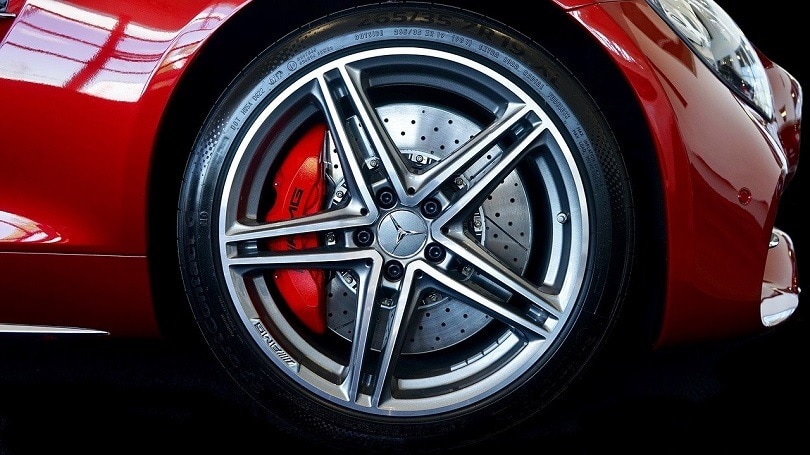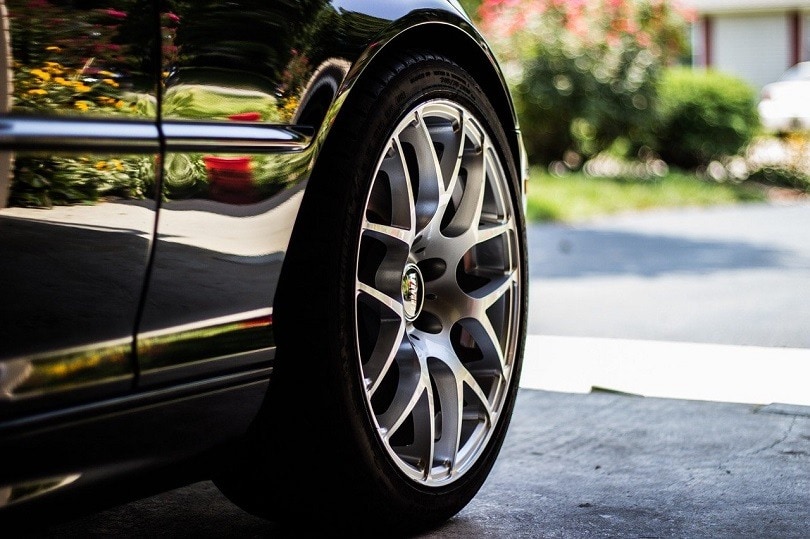Steel vs. Alloy Wheels: What’s the Better Choice?
-
Pete Ortiz
- Last updated:

Wheels are one of the most important elements of a car. They are the only section of the vehicle that comes in direct contact with the road. They affect everything from how your car handles to how efficiently it uses fuel, and they play a vital role in the aesthetics of the vehicle as well. While steel wheels were once the wheel of choice for all car manufacturers and owners, alloys have become increasingly common. They are an optional extra on virtually all models of car, and owners can replace steel wheels with after-market alloys.
The choice of steel or alloy wheels boils down to several factors, including price, visual appeal, vehicle performance, and maintenance. So, which ones are best for your car?
Steel Wheels
Steel wheels are an alloy of iron and carbon. They are heavy, durable, and easier to repair than the more brittle alloy wheels. However, they come in a limited range of designs and finishes, and the extra weight reduces fuel economy.
Alloy Wheels
Alloy wheels are an alloy of aluminum and nickel. They are made from cast aluminum, and the molten metal is poured into a mold. This process enables manufacturers to create a baffling array of wheel designs, while the alloy material is lightweight but somewhat durable. Drivers usually choose alloys for their improved looks, although they do offer marginally better fuel consumption.
Looks
Alloy wheels are made by casting molten aluminum. This allows manufacturers greater flexibility when crafting designs. As such, you will find this type of wheel in a greater range of designs.
To make a steel wheel, manufacturers cut the steel on a press and weld the parts together. This process means that there are fewer design options available, and most steel wheels have the same basic look. Steel wheels can be painted, but there are few, if any, spoked models on the market.
Durability
There are two elements to durability: the wheel structure and it’s finish. Aluminum wheels are lightweight and less resistant to impact damage caused by potholes and rough terrain. Some variants, including bare polished and chrome-plated, may also be susceptible to oxidation and scratching.
Steel is a tough and incredibly durable material. Steel wheels are resistant to cracks and impact damage. They also resist harsh chemicals, and brake dust or gravel will not cause damage to this type of wheel. However, steel is more prone to rust, and any chip or other damage can quickly lead to rusted sections.
Repairs
Not only is aluminum more prone to damage, but it is more difficult to repair. If you suffer a crack or other major fault in the wheel, it will need to be replaced because the alloy cannot be welded or otherwise repaired.
Steel is hardier than aluminum. Wheels can often be hammered back into shape following impact damage. They can also be welded back together.

Maintenance
Aluminum wheels require maintenance if you want to ensure that they retain their good looks. The wheels need cleaning and brushing, and you should have any chips seen straight away to prevent damage from worsening.
Steel wheels require much less maintenance. You can wash the wheels when you wash the rest of the car, and they do not require any special cleaning materials.
Fuel Efficiency
Alloy wheels are considerably lighter than their steel counterparts, which means that the vehicle carries less weight overall. However, the difference is likely to be nominal, and most car owners do not notice the difference at the pump or on their wallets.
Steel is heavy, which does add to the weight of the car, but considering typical fuel spends, it would take decades of reduced fuel consumption to recoup the additional outlay for a set of alloys.
Performance
The reduced weight of alloy wheels also translates to improved performance. Lighter vehicles pull away quicker and have improved acceleration. The reduction in unsprung weight, or weight that is not supported by the suspension, improves ride quality, so the driver and passengers will enjoy a bump-free journey. Steering and handling in the corners are also improved with this type of wheel.
Steel wheels are heavy, and they feel it when you drive, especially if you’re used to alloys. However, steel is preferred for general off-roading because they offer better grip at low speeds.
Purpose
Alloys and steel wheels both have their advantages and disadvantages. The choice of which to buy typically comes down to personal preference, as well as how you intend to use the wheels. If you will be doing any off-roading, you should opt for the heavier and more durable steel wheels. They will withstand most of the knocks and bumps, and even if you do manage to crack the wheel, you can easily have it repaired.
On the other hand, alloy wheels are better for vigorous driving and if you enjoy the occasional track day. They do offer improved fuel economy, although this doesn’t equate to a financial saving because of the increased initial cost. If you show your car, then alloys are the better option.
Cost
There are multiple costs to consider when buying wheels. Alloys cost more upfront, have higher maintenance costs, and cost more to repair or replace. They do offer improvement in fuel economy, but this is unlikely to make enough of a difference to offset other costs.
Steel wheels are easier to repair. This means that instead of paying to replace a cracked wheel, you could save considerable money by having it welded or hammered back into shape.
Steel vs. Alloy Wheels
Steel wheels do offer multiple benefits over aluminum alloy wheels, but it is impossible to avoid the fact that alloys look better and are available in a much wider range of styles and designs. Many drivers also insist that they offer a noticeable improvement in handling and driving comfort.
Featured Image Credit: MikesPhotos, Pixabay
Contents


